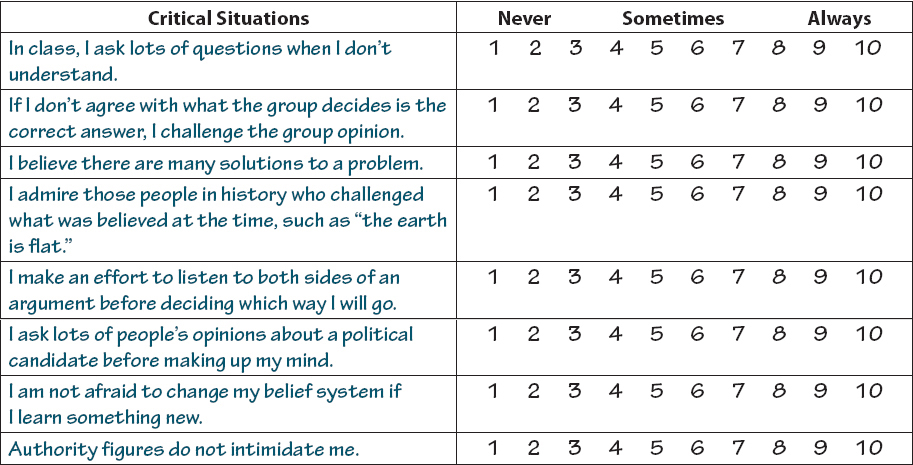Defining Critical Thinking
Let’s start with what critical thinking is not. By “critical,” we do not mean “negative” or “harsh.” Rather, the term refers to thoughtful consideration of the information, ideas, and arguments that you encounter. Critical thinking is the ability to think for yourself and to reliably and responsibly make decisions that affect your life.
As Richard Paul and Linda Elder of the National Council for Excellence in Critical Thinking explain it, “Critical thinking is that mode of thinking about any subject, content, or problem in which the thinker improves the quality of his or her thinking by skillfully … imposing intellectual standards upon [his or her thoughts].”1 They believe that much of our thinking, left to itself, is biased, distorted, partial, uninformed, or downright prejudiced. The quality of our life and the quality of what we produce, make, or build, however, depend precisely on the quality of our thoughts.
Paul and Elder also caution that shoddy thinking is costly. How so? You probably know people who simply follow authority. They do not question, are not curious, and do not challenge people or groups who claim special knowledge or insight. These people do not usually think for themselves but instead rely on others to think for them. They might indulge in wishful, hopeful, and emotional thinking, assuming that what they believe is true simply because they wish it, hope it, or feel it to be true. As you might have noticed, such people tend not to have much control over their circumstances or possess any real power in business or society.
Critical thinkers, in contrast, investigate problems, ask questions, pose new answers that challenge the status quo, discover new information, question authorities and traditional beliefs, challenge received dogmas and doctrines, make independent judgments, and develop creative solutions. When employers say that they want workers who can find reliable information, analyze it, organize it, draw conclusions from it, and present it convincingly to others, they are seeking individuals who are critical thinkers.
Whatever else you do in college, make it a point to develop and sharpen your critical-thinking skills. You won’t become an accomplished critical thinker overnight. With practice, however, you can learn how to tell whether information is truthful and accurate. You can make better decisions, come up with fresh solutions to difficult problems, and communicate your ideas strategically and persuasively. The rating scale in Figure 5.1 will help you rate yourself as a critical thinker.
Circle the number that best fits you in each of the critical situations described below. Click here to download the figure.
